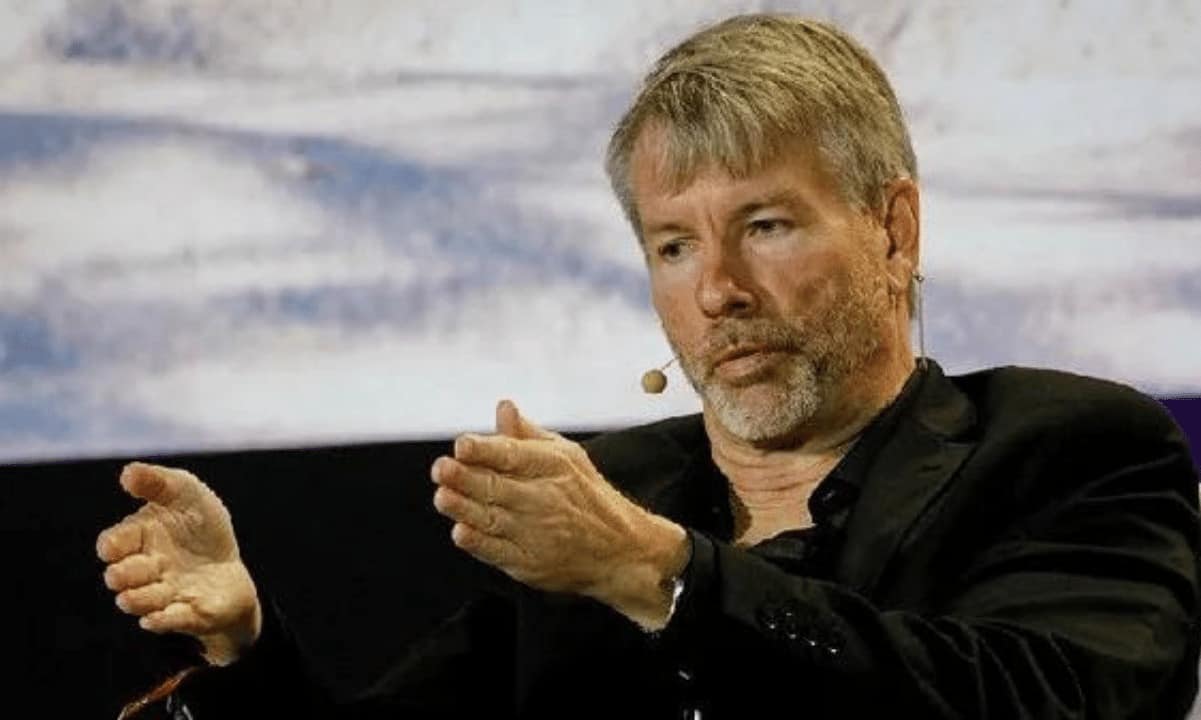Bitcoin Energy Concerns Are Lobbyist Propaganda, Says Michael Saylor

MicroStrategy’s Executive Chairman Michael Saylor has published a letter clearing his thoughts on Bitcoin mining and its impact on the environment and energy systems.
He argued that Bitcoin mining is, in reality, far less of an environmental issue than it is often made out to be. Rather, he believes it wouldn’t be on the public radar if not for the extensive lobbying efforts of competing interests within the crypto industry.
Michael Saylor Defends Mining
Upon publishing the letter on Wednesday, Saylor said he was motivated to “share the truth” on Bitcoin’s relationship with the environment, given the “misinformation & propaganda” circulating about it as of late.
The Bitcoin network currently consumes more energy than any other blockchain network by a wide margin. This is due to its Proof of Work (POW) consensus mechanism, which requires energy-intensive computer rigs (miners) to secure the blockchain.
The only network of comparable size using this mechanism is Ethereum. However, with the Merge expected to happen within the next 24 hours, Bitcoin will soon stand alone as the only cryptocurrency with a noteworthy energy profile.
But as Michael Saylor argued, Bitcoin’s contribution to climate change is still “a rounding error” on the global stage.
“99.92% of carbon emissions in the world are due to industrial uses of energy other than bitcoin mining,” he said. “Bitcoin mining is neither the problem nor the solution to the challenge of reducing carbon emissions.”
One reason for Bitcoin’s low carbon emissions is its highly renewable energy makeup. A survey from the Bitcoin Mining Council in July found that the mining industry’s energy mix is 59.5% green – a figure that is rising over time. By comparison, the overall green energy mix is roughly 21.7%.
The chairman also explained how Bitcoin Mining provides objective benefits to environmental and energy systems. For example, miners can be used to monetize stranded methane gas that must otherwise be flared off in a far more environmentally harmful way.
Furthermore, miners can provide a flexible load to energy grids with ‘unreliable’ renewable sources like wind and solar power. This will help those grids stay profitable, and “finance the buildout of additional capacity necessary to responsibly power major industrial/population centers.”
The Anti-Bitcoin Lobby
Looking at the statistics, Saylor does not believe that environmentalist arguments against proof of work are being made in good faith.
“[Bitcoin’s carbon emissions] would hardly be noticed if it were not for the competitive guerrilla marketing activities of other crypto promoters & lobbyists that seek to focus negative attention on Proof of Work mining,” he stated.
It’s not uncommon for figureheads of other cryptocurrencies to bad-mouth Bitcoin’s energy requirements – especially those backing proof of stake coins.
Cardano co-founder Charles Hoskinson told Lex Friedman last year that Tesla should accept ADA for car payments, rather than the energy-intensive Bitcoin. In March, Ripple’s co-founder Chris Larsen funded a $5 million environmental campaign to spread awareness about Bitcoin’s potential environmental harm.
The impact of such endeavors appears to be a splash in both the free market and regulatory arena. While certain companies have backed out of accepting Bitcoin payments over environmental concerns, the White House is now considering the outright banning of mining operations to address the issue.
In Saylor’s view, these lobbying efforts are merely meant to steer government focus away from proof of stake cryptos, which have their own regulatory issues.
These efforts, Saylor said, “distract regulators, politicians, & the general public from the inconvenient truth that Proof of Stake crypto assets are generally unregistered securities trading on unregulated exchanges to the detriment of the retail investing public.”
Ripple is currently embroiled in a lawsuit with the Securities and Exchange Commission (SEC) for allegedly conducting an unregistered securities sale in the form of XRP. Meanwhile, crypto exchanges like Coinbase are being targeted by the commission for listing multiple cryptos that pass the Howie Test.
Binance Free $100 (Exclusive): Use this link to register and receive $100 free and 10% off fees on Binance Futures first month (terms).
PrimeXBT Special Offer: Use this link to register & enter POTATO50 code to receive up to $7,000 on your deposits.



